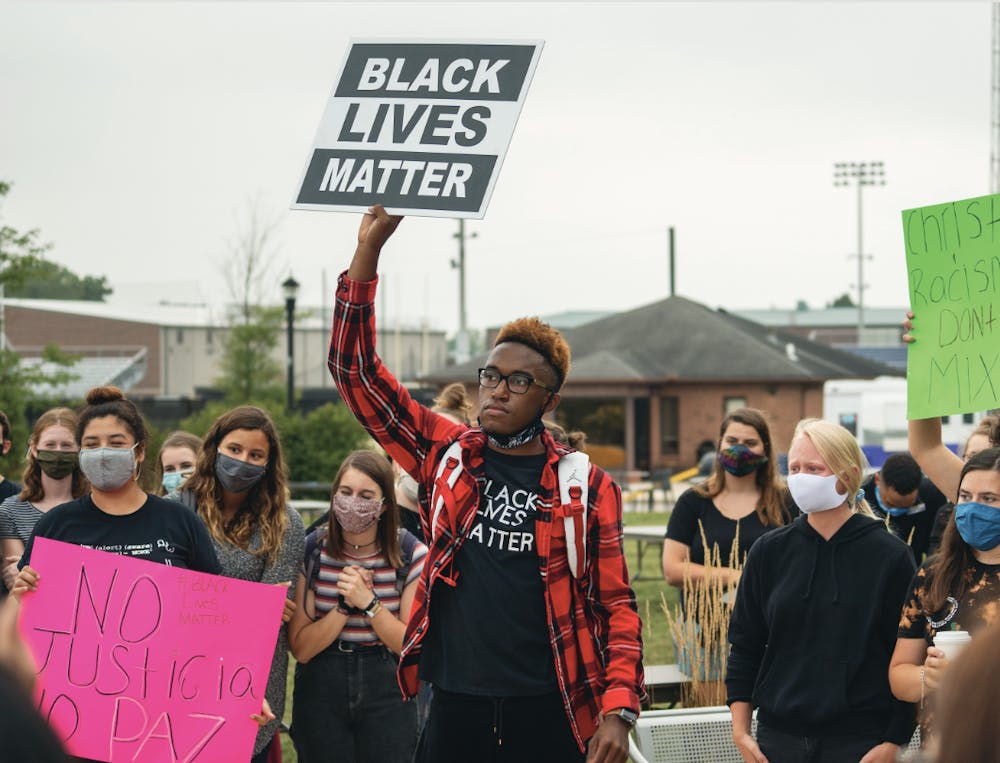While sitting on the bed next to my best friend, we were both about 8-years-old, looking for something fun to do. He was carving out a lampshade using a sharp box cutter knife. He was hoping to make an eagle’s face and then to project the silhouette onto the wall. It sounded so cool! We were both so focused on what he was doing, that if it were not for the stabbing pain and gushing blood from my leg, we would not have noticed that he had accidentally stabbed me. Just above my kneecap and straight through my denim jeans protruded the long, sharp object. He just kept saying over and over again, “I’m so sorry, I’m so sorry!” I only had one thought: please stop apologizing and pull it out of my leg.
Our battle with racial forgiveness feels the same way. People who observe the injustice of racism keep saying, “I’m sorry, I’m sorry, I’m sorry!” It is like after the death of a loved one, being at a loss for words we say “I’m sorry for your loss”. Comparatively, what damaged groups need regarding the issue of racism is for someone to take the “razor” of injustice out of our bodies. You and I live on one side or the other of the razor right now — on the majority side of the razor, feeling like someone should accept your apology. You keep giving it over and over again and frankly, you're becoming frustrated that hurt individuals won’t accept your words as being enough. For the minority, living on the receiving end of the razor, feeling like someone should stop the pain. Relationships impacted by ethnicity are quite messy. There is no easy way to say this, but 1,000 apologies and a dime won’t even make a phone call in the state of Indiana.
There is help from God’s Word. 1 John 1:9 says, “If we confess our sins, He is faithful and just to forgive us our sins and to cleanse us from all unrighteousness.” The idea of confession is more than simply apologizing. Webster defines confession as “disclosure of one’s sins.” Confession is recognizing that God is calling for us to say the same thing that He is saying about the issue at hand. It’s specific, clear, contrite and authentic. From the position of the offender, regarding racism, there is the impression of never quite being sure who to blame. After all, “I didn’t own any slaves” might be your defense , and “ I have a (other ethnicity than your own) friend.”
From whom, exactly, are people expecting an apology, and for what? Maybe that is why our society is still so stuck when it comes to racial issues. We’re not able to agree on what the problem is. So, God may be saying something about an issue like racism, but we can’t say the same thing about it because we don’t see the same problem. Nothing to confess. Oh God, help us to see what you see.




